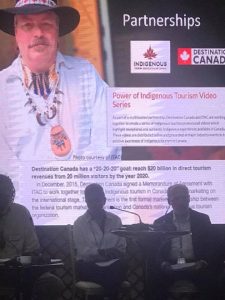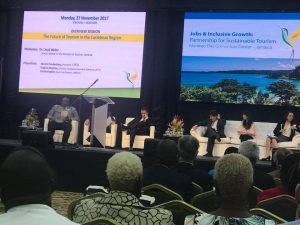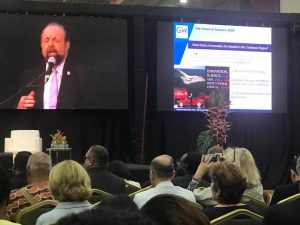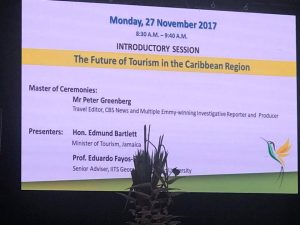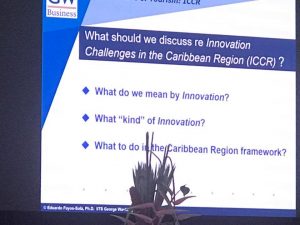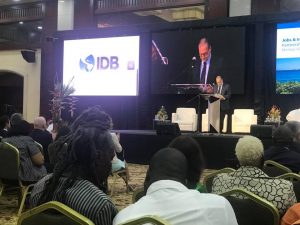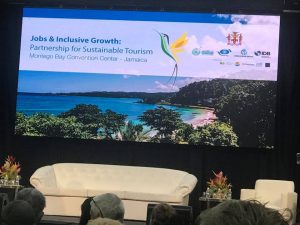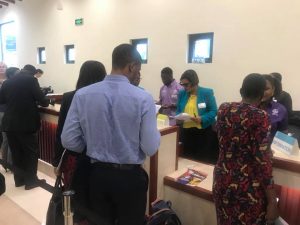
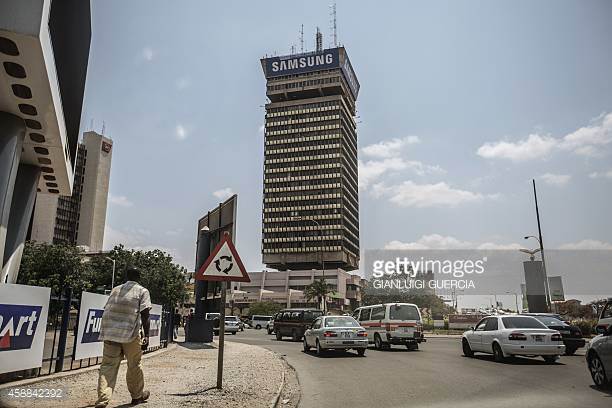
African tourism leaders debate the role of the sector as a tool for inclusive growth and community engagement
The potential of Tourism in poverty alleviation and to induce transformative change has been addressed in Lusaka, capital city of Zambia, in the World Tourism Organization (UNWTO) Conference on Promoting Sustainable Tourism, a Tool for Inclusive Growth and Community Engagement in Africa. The Conference, a flagship event of the Africa region for the celebration of the International Year of Sustainable Tourism for Development, took place last 16-18 November and was coordinated by the World Tourism Organization (UNWTO) in cooperation with the Government of Zambia.
According to UNWTO statistical data, the African continent had an increase of international arrivals of 8% in 2016, compared to the previous year. This, together with the increasing commitment of African governments to position tourism in their agenda, reveals the gaining prominence of the sector as well as its strong potential to foster positive change and transformation.
The Conference that was preceded by a technical workshop to revise strategies and approaches to develop sustainable tourism initiatives in the African continent, tackled these issues as well as the potential of sustainable tourism to lead policies to foster communities inclusion. The summit was attended by more than 200 international and local participants from Angola, Egypt, Jordan, Cabo Verde, Guinea Equatorial Kenya, Mali, Republic of Congo, Sudan, Switzerland, Spain, Union of the Comoros, Malawi, Seychelles, South Africa, Zambia and Zimbabwe.
The event commenced with a Ministerial Dialogue on Tourism, Inclusive Growth and Sustainable Development in the African continent, attended by Charles Banda, Minister of Tourism and Arts of Zambia, Ronald Chitotela, Minister of Housing and Infrastructure Development of Zambia, Taleb Rifai, UNWTO Secretary-General, Fatuma Hirsi Mohamed, Principal Secretary of the Ministry of Tourism of Kenya, Abdelgadir Dmein Hassan Undersecretary of the Ministry of Tourism, Antiquities and Wildlife of Sudan and Dorothy Tembo, Deputy Executive Director at the International Trade Center. The session was moderated by Brownyn Nielsen, Editor-in-Chief at CNBC Africa who invited the attendees to showcase sustainable tourism practices in the region and how the sector could help achieve the SDGs and generate benefits for African societies.
The framework of the Agenda 2030 and the Sustainable Development Goals were defined together with the African Union Agenda 2063 as the best scenario to foster sustainable tourism in the continent.
Precisely to this green, responsible and eco-friendly tourism was dedicated the intervention of Charles Banda, Minister of Tourism and Arts of Zambia who emphasized that “sustainability is believed to be the link between the present and the future. As patrons of the tourism sector our role is to ensure that even our children’s children experience the same nature in the form that it currently is and not in a worse off state.”
As commented by Edgar Chagwa Lungu, President of the Republic of Zambia, the International Year of Sustainable Tourism for Development is a unique opportunity to highlight the importance of the tourism sector and to promote activities to enhance the contribution of the sector for national economies. The President emphasized the capacity of tourism to contribute to local development and stated that “the Lusaka Declarationis an important milestone in the Agenda 2030 and towards achieving the Sustainable Development Goals and in the recognition of tourism as an essential development pillar.”
UNWTO Secretary-General Taleb Rifai, who congratulated Zambia for hosting the Conference as member of the UNWTO Executive Council and Chair for 2019, highlighted that the current world is facing major transformations namely the digital revolution, connecting our minds virtually and globally, the urban revolution, connecting our life style and our livelihoods and the travel revolution connecting us physically and culturally “Today, the world is at a major transformation juncture, rapid and fast change is the essence of our time. The three global forces are leading this transformation”, he added. During his visit, Rifai also declared the South Luangwa National Park of Zambia as a sustainable park.
Partnerships, technology and wildlife conservation at the core
The sessions were organized into four panels tackling Public-Private Partnership, the Role of Technology in the development of tourism, Wildlife conservation and Community Engagement and Air Connectivity in Africa.
The final outcome of the conference was the Lusaka Declaration on Promoting Sustainable Tourism Development, a Tool for Inclusive Growth and Community Engagement in Africa. The document, which places sustainability at the core of tourism development and on national and international development agendas, was adopted unanimously by all participants.
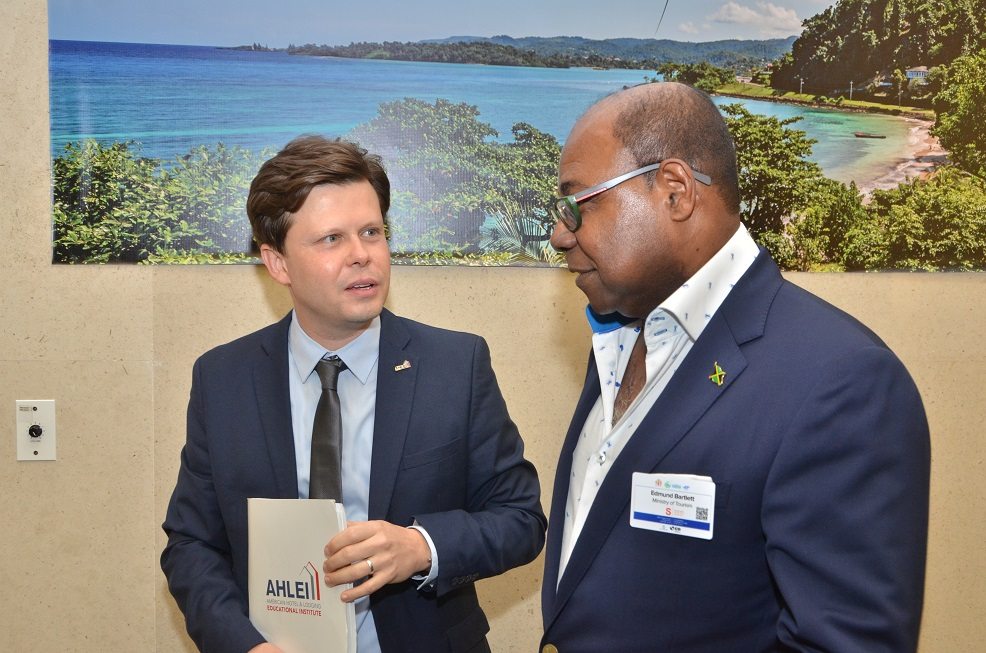
Jamaica Tourism Minister signs MOU towards development of Centre of Tourism Innovation
Jamaica’s Minister of Tourism, Hon. Edmund Bartlett, signed a memorandum of understanding with the Vice President of International Sales at the American Hotel & Lodging Educational Institute (AHLEI), Ed Kastli to bolster the development of programs of the Jamaica Centre of Tourism Innovation (JCTI).
Sharing in the moment were the Executive Director of the Tourism Enhancement Fund (TEF), Dr. Carey Wallace; Chairman of the Tourism Product Development Company (TPDCo), Ian Dear; Director of the JCTI, Carol Rose Brown; Executive Director of TPDCo, Dr. Andrew Spencer; and Chairman of TEF, Godfrey Dyer.
The AHLEI will provide their expertise in program development to the JCTI, which is scheduled to open in January 2018.
The signing took place during the first day of the United Nations World Tourism Organization (UNWTO), Government of Jamaica, World Bank Group and Inter-American Development Bank Global Conference on Jobs and Inclusive Growth: Partnerships for Sustainable Tourism, taking place at the Montego Bay Convention Centre from November 27 – 29, 2017.
The JCTI was created to increase access to graduates in hospitality, tourism and culinary arts, to supervisory and management jobs in tourism. The program also includes a partnership with the American Culinary Federation (ACF) and will welcome its first students in January 2018.
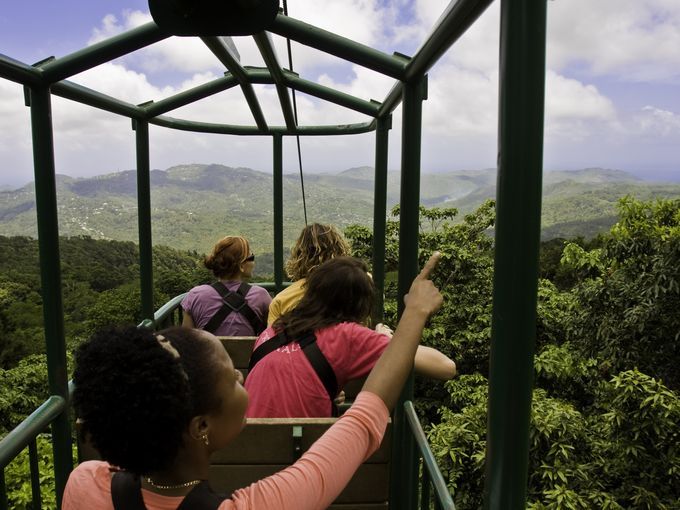
The future of tourism: Innovation challenges in the Caribbean
At the Global Conference on Jobs and Inclusive Growth ongoing at Montego Bay in Jamaica, Prof. Dr. Eduardo Fayos-Solà, Senior Adviser of the International Institute for Tourism Studies at George Washington University, shared concepts, proposals, and innovation challenges on the future of tourism in the Caribbean.
It is now more than 50 years since Thomas Kuhn published his famous work on The Structure of Scientific Revolutions and the key concepts of paradigm and paradigm shifts. Later, authors such as Joel Barker, have extended the force-concept of paradigm, from science to business and governance. A paradigm is “a framework of concepts and theories” allowing for subsequent common action in business, governance, science and technology, structured upon such framework.
In “normal times” or “business as usual,” science, business, and governance are conducted within the limits and concept of one of these “frameworks,” a “paradigm.” But “existing paradigms” face major disruptions – paradigm shifts – when the set of problems changes too rapidly, and existing methods do not work. A paradigm shift is a “game changer.” It involves a dramatic advance in methodology and practice, a major innovation in thinking and planning. It is especially true in such cases of paradigm shift that “The Future of Tourism” – or simply “The Future” – depends on innovation.
There are three kinds of innovation:
● Reforming, e.g., slightly improved products.
● Re-engineering: A new production method, with increased efficiency.
● Revolutionary (or “disruptive”): Breakthrough science, technology, marketing, or governance – entirely new products and processes, often involving dramatic new technology and satisfying previously unforeseen expectations and needs.
Even within the existing paradigm, we can have “reforming innovation” and “re-engineering innovation.” But “disruptive innovation,” and even broader “revolutionary innovation,” usually happen in the context of a “paradigm shift.” Let’s focus on “The Future of Tourism” and the 21st century key problems of: Climate Change, Development, and Governance.
Innovation (and scaling it with investment) is our bridge to the future. So, why not really go for it? Is it too risky? Are the rewards not high enough? Would this just be upsetting the apple cart? How would the region begin? By de-risking public and private institutions, as well as financial and fiscal stimuli; rewarding both the private and the public sector, and tilting the playing field (upsetting the apple cart). This may require debunking a few myths beforehand.
The problems of Climate Change, Development, and Governance are likely to require paradigm shifts in the Caribbean region, with the implication of disruptive/revolutionary innovations in: science and technology; culture, society and market mechanisms (including “marketing,” and institutional frameworks and governance. An adaptive and “successful” “Future of Tourism” in the Caribbean region requires innovation in all three areas.
As far as glocal – global and local – issues are concerned, it is well known that tourism destinations go through business life-cycles. In the Caribbean region, as elsewhere, it is important to analyze the stages in such cycles: exploration, involvement, development, consolidation, stagnation and rejuvenation, or decline. Innovation challenges vary with destination cycle stages.
In the Caribbean, it is key a quick change in framework scenarios, as well as “destination action,” with rapid adaptation/rejuvenation through all kinds of innovation, but mostly disruptive/revolutionary innovation. The exact nature and speed of the environmental, cultural, and governance changes cannot be known, so it is difficult to achieve full long-term adaptation through specific programs, projects, and reforms that are decided now. It is framework institutions, agreements, and plans which are needed.
Innovation is needed in: human capital, institutional capital, physical capital, natural capital, financial capital, and “pillars,” for example: human capital development; new partnerships, new markets, and new products; environmental sustainability; and new investments.
Environmental, scientific, technological, cultural, and social change in markets, institutions, and governance is inexorable and coming fast. The future is not what it used to be, and tourism faces a profound paradigm shift in the next few decades, so innovation is essential.
In conclusion, let us consider that it is plasticity for adaptation – rather than resilience – in our businesses, institutions, and governance, which matters, vis-à-vis “The Future of Tourism.” Knowledge management and a proper milieu (governance) for innovation is the required passport when readying to walk in the coming brave new world.
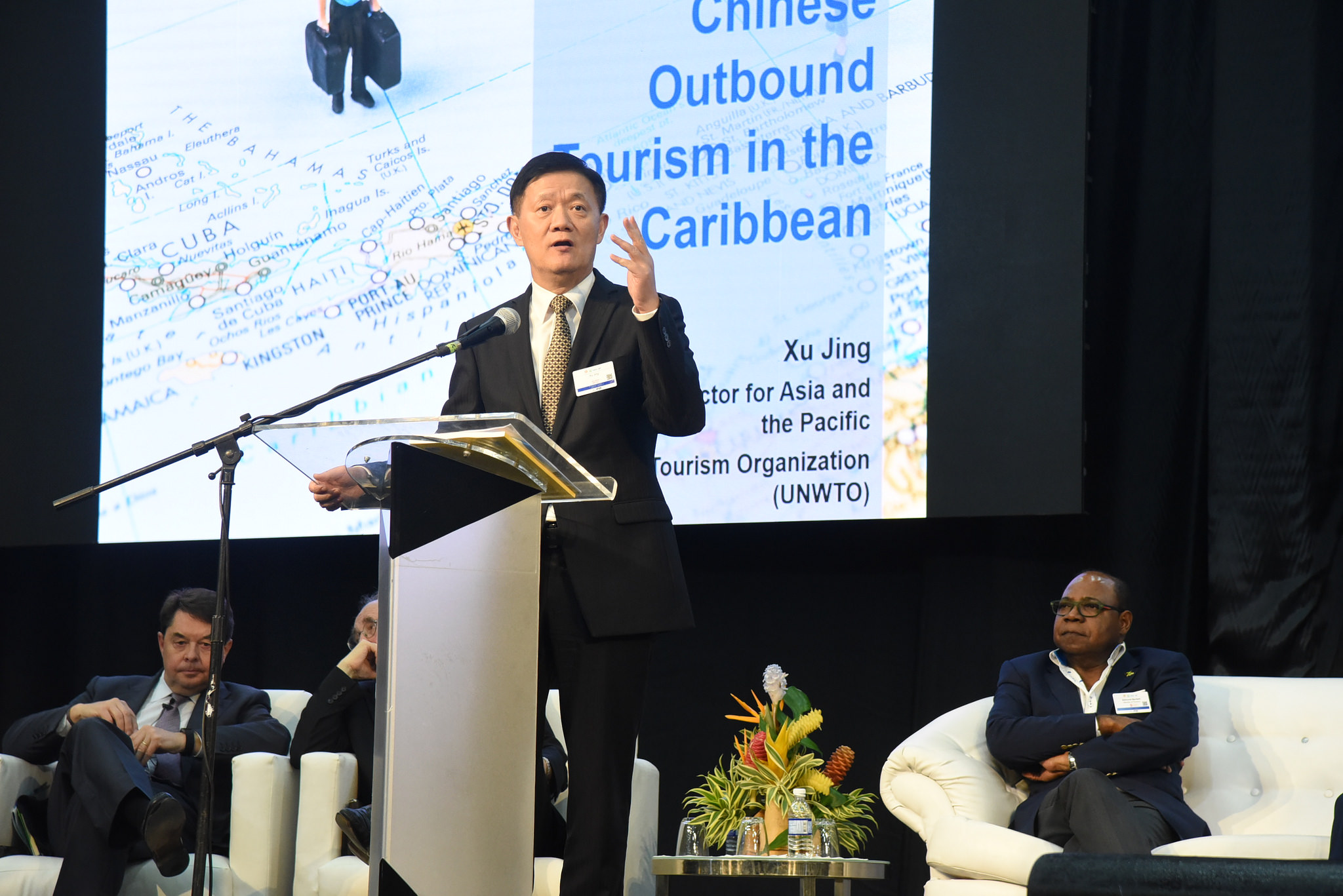
Look to Asia as next frontier for travelers
As the Caribbean looks to grow its tourism market, a senior executive of the United Nations World Tourism Organization (UNWTO) has urged the region to look to Asia as its next frontier.
UNWTO’s Regional Director for Asia and the Pacific, Xi Jing, himself an Asian, yesterday outlined the tremendous potential of the market, especially targeting millennials with strong spending power. He was making a special presentation to participants attending the Global Conference on Jobs and Inclusive Growth: Partnerships for Sustainable Tourism, at the Montego Bay Convention Centre.
He advised the tourism leaders, policymakers and other stakeholders to “start thinking about Asia in addition to your decades of thinking about Europe, your long time of thinking about America and about Latin America.” Mr Xi Jing presented facts on outbound Chinese travel to reinforce his argument that Asia presented itself as the next source market for the Caribbean.
Overall, he said, there were 1,235 million international arrivals around the world and already Asia and the Pacific were taking 25 percent of the market with the goal of reaching 30 percent by the year 2020. On top of that, he noted, in 2016 while other regions were showing a growth rate of 3.9 percent, the Asia and pacific region was way ahead with a 9 percent growth rate.
In monetary terms, looking at the tourist spend, the Asia-Pacific region was spending 40 percent of the world’s tourism expenditure with much of it remaining within the region. But from the Asian countries alone, China spent 21 percent of the entire world’s tourism expenditure. “On a year-to-year basis, we’re talking about 120 to 130 million Chinese outbound travelers to the rest of the world,” he stated.
Mr. Xi Jing pinpointed the eastern coast of China, including Beijing, Shanghai and other major cities as the area of concentration for Chinese outbound travel and where Jamaica and the rest of the Caribbean must target. “This is the area where per capita GDP is around US$10,000 and generated 32 percent of Chinese travelers around the world, he said.
However, he explained that while now only six percent of the Chinese population had a passport, compared to 40 percent of people of the United States, the Chinese did not need a visa to come to Jamaica; however, this was not well known.
Taking a look at Chinese demographics, Mr. Xi Jing said “baby boomers” were estimated to be 219 million by 2030 and preferred long distances and travelled for a longer time, while “millennials” would reach 414 million with 31 percent of the population being technologically savvy and wanted to be treated differently. They were also better at speaking English and it was important to utilize their preferred digital platform in marketing as the typical western system would not work with them.
Most Chinese now travel to neighboring countries but the United States beckoned as their next destination. Mr. Xi Jing said the US received 2.6 million Chinese visitors and 10 million visited the European Continent in 2016. Florida alone received 300,000. Their preferred periods of travel were end of January to beginning of February and the beginning of October.
In the Caribbean, Cuba with 40,000, has the highest number of Chinese visitors with Jamaica coming in second with 3,899. Mr. Xi Jing has suggested that the Caribbean and Jamaica, in particular, could attract many more by changing mind-set on how to penetrate the market and doing away with certain stereotypes about the Chinese.
He also recommended Jamaica increasing facilitation to carry over Chinese travellrs from the American market, offering more Chinese friendly services and highlighting the unique Caribbean culture.
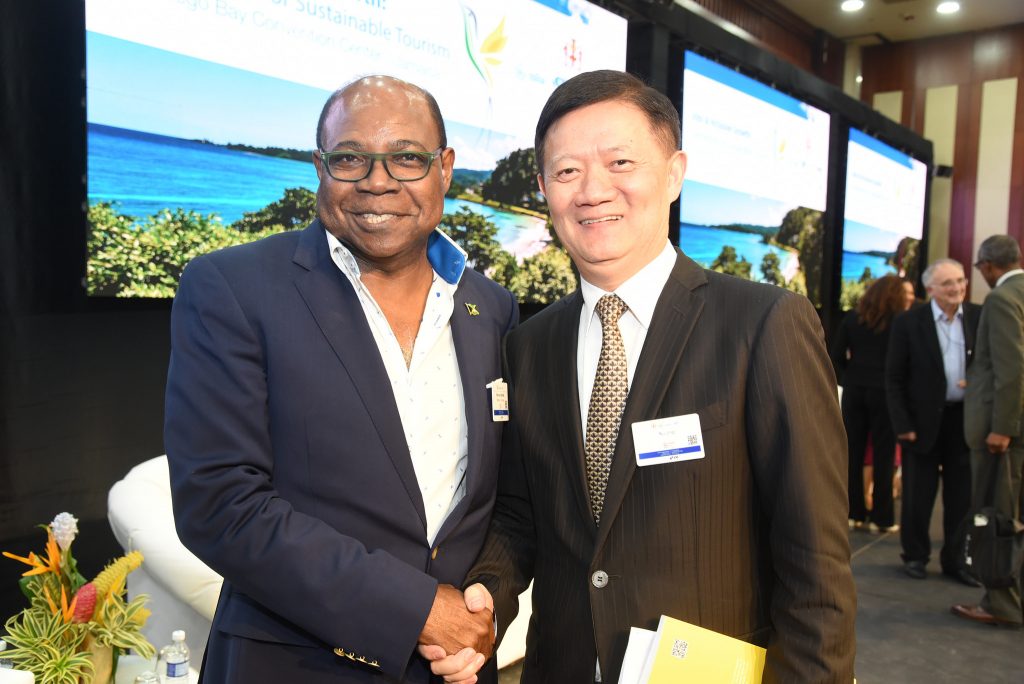
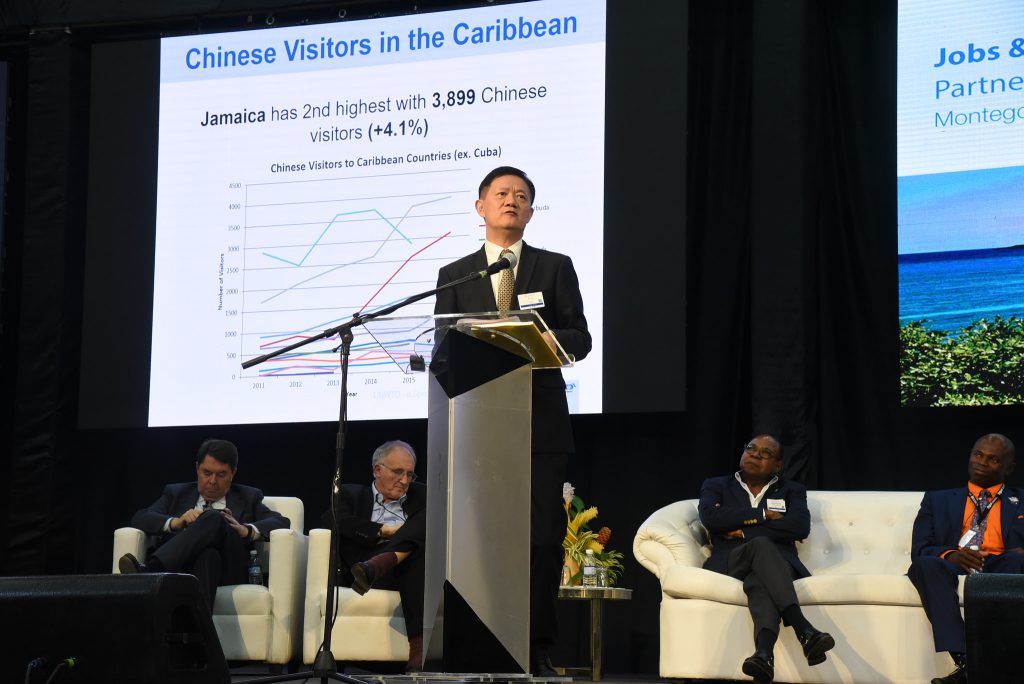
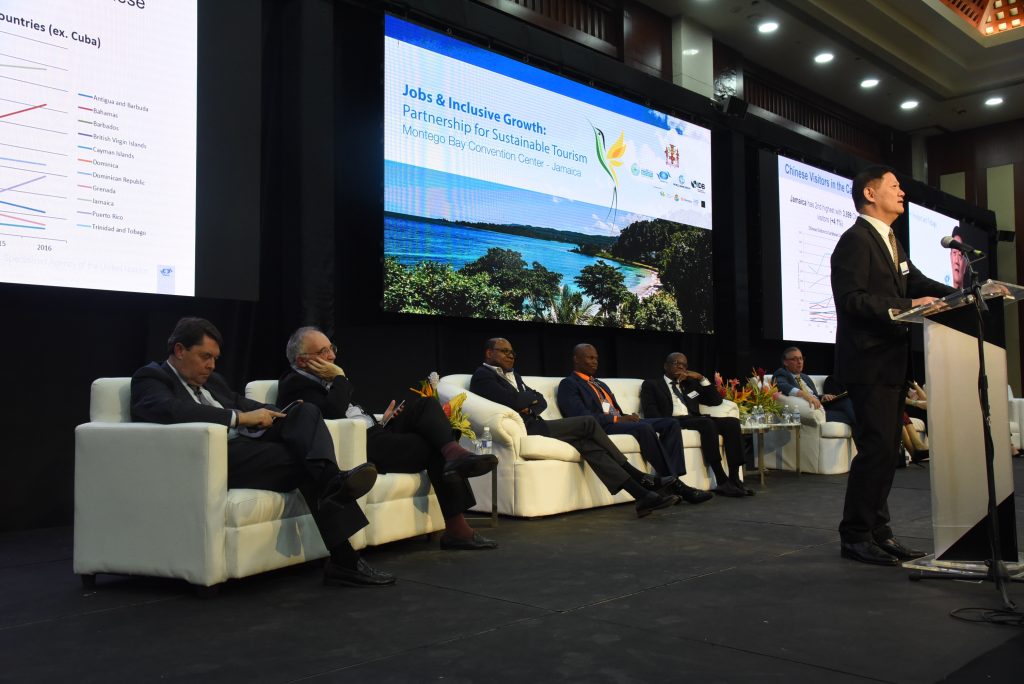
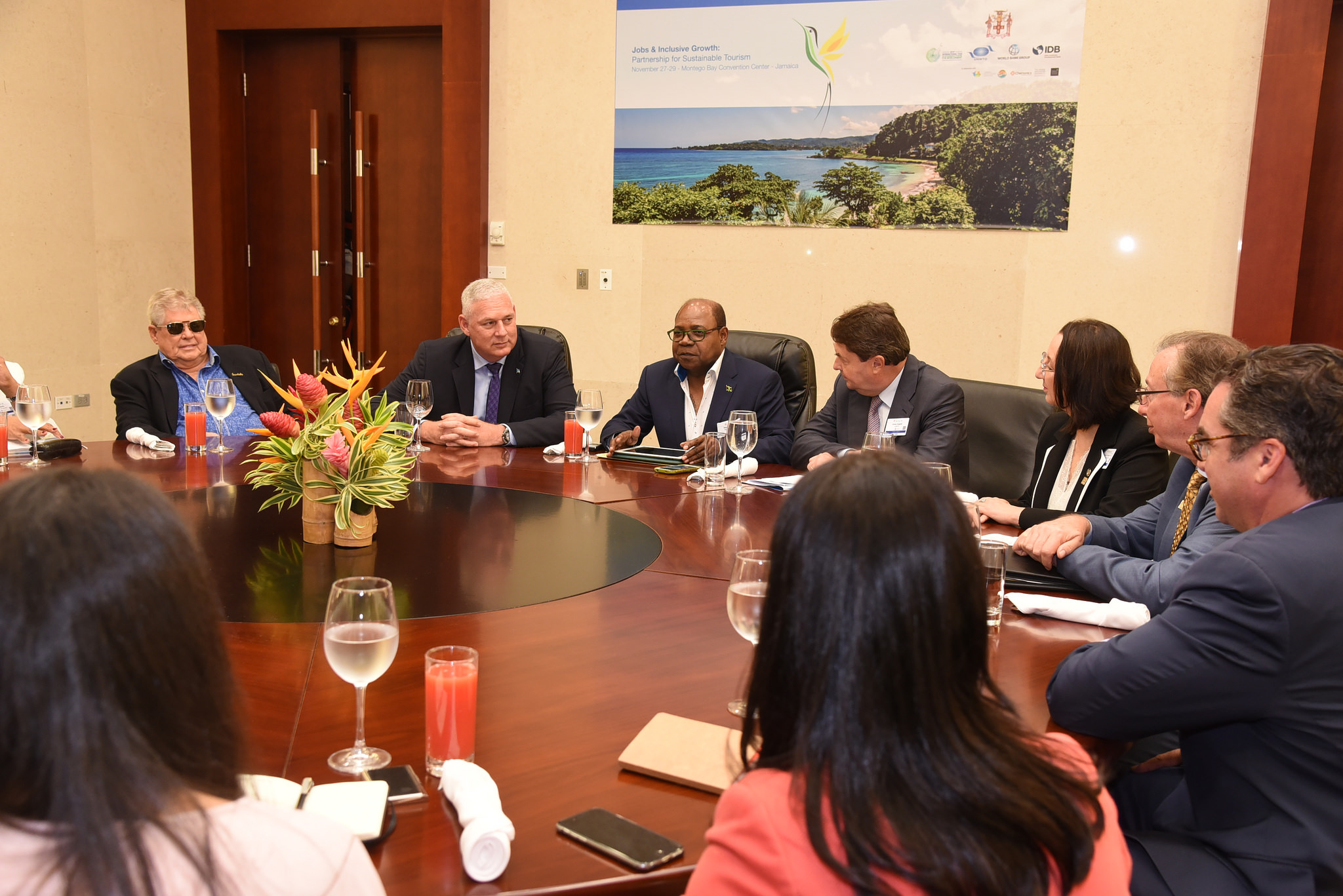
Minister Bartlett gives update on Caribbean Resilience Initiative
Acting in his capacity as Chairman of the Caribbean Tourism Recovery Group and UNWTO’s Disaster Recovery Working Group for the Affected States in the Caribbean, Minister of Tourism, Hon. Edmund Bartlett, continued discussions with key international and regional stakeholders about building resilience for the region in the event of natural disasters.
Sharing in the moment are, Prime Minister of St Lucia, the Most Hon. Allen Chastanet (left) and Executive Director of the UNWTO, Carlos Vogeler. The Minister used the opportunity to announce that a full draft of the recovery program would be ready at the end of the United Nations World Tourism Organization (UNWTO), Government of Jamaica, World Bank Group and Inter-American Development Bank Global Conference on Jobs and Inclusive Growth: Partnerships for Sustainable Tourism.
The announcement was made during the first day of the conference (Monday November 27, 2017), which is taking place at the Montego Bay Convention Centre.
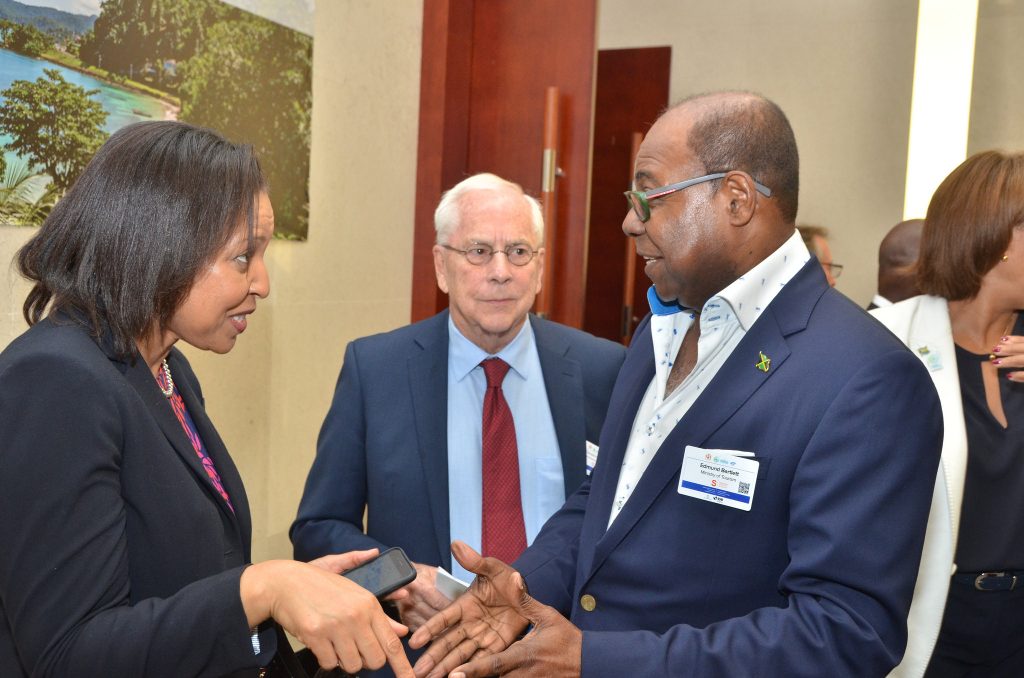
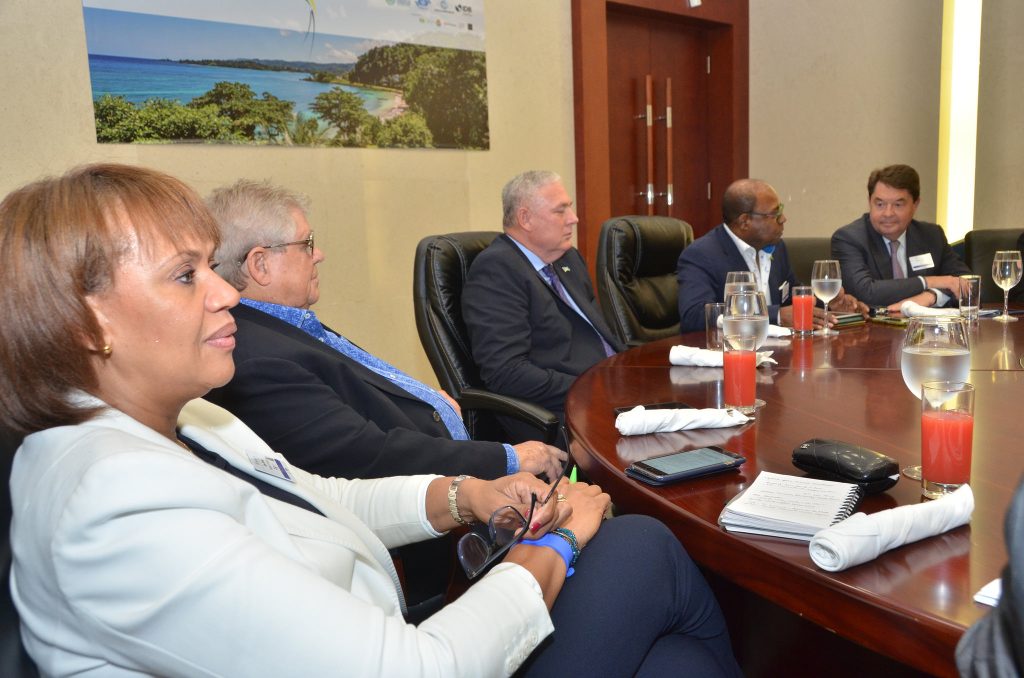

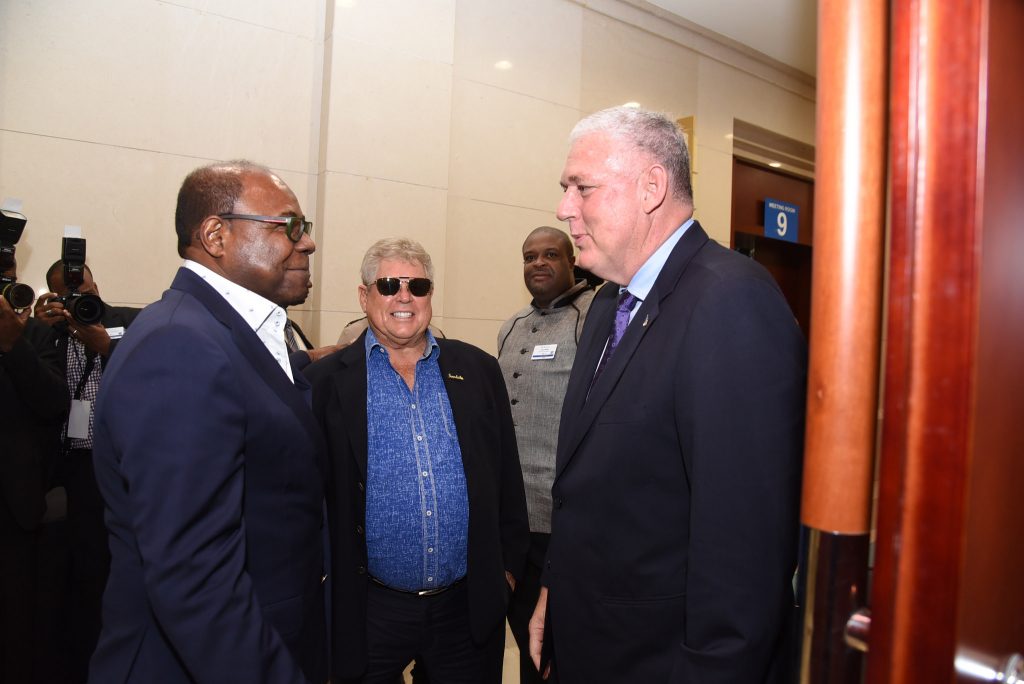

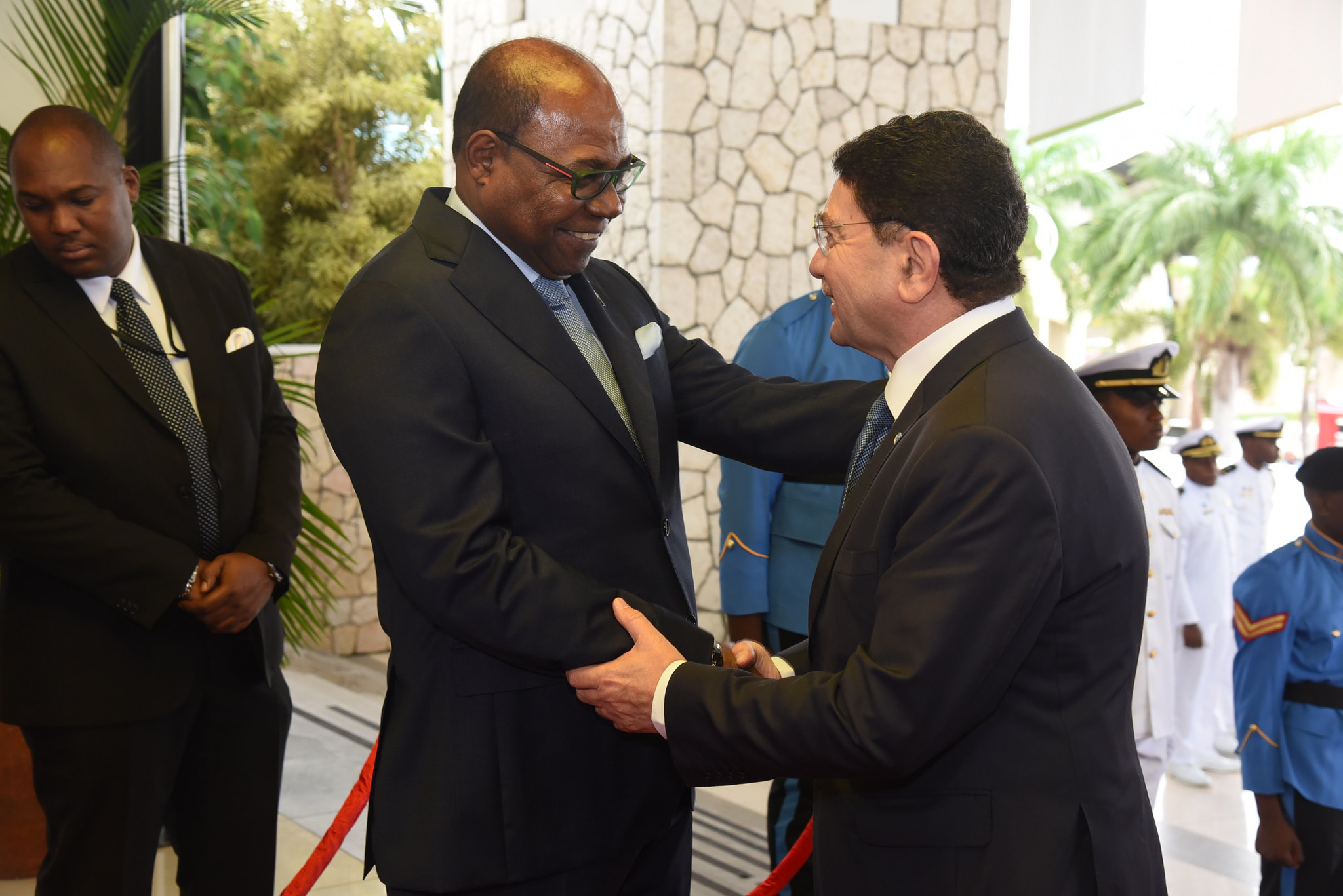
Tourism and the global sustainable development: Minister Bartlett’s remarks on Day 2 of UNWTO conference
Jamaica’s Tourism Minister Hon. Edmund Bartlett delivered the following remarks on Day 2 of UNWTO Global Conference:
• The quest to achieve sustainable development dominates the national policy agendas of most countries across the world. The United Nations in 2016 expanded its original global development mandate – the Millennium Development Goals – to give increased focus to a wide range of areas that are considered urgent to a successful global agenda for sustainable development.
• One hundred and ninety-three (193) World leaders adopted the 17 Sustainable Development Goals of the 2030 Agenda for Sustainable Development, indicating their commitment to mobilize efforts to eradicate poverty, fight inequalities and tackle climate change while ensuring that no one is left behind.
• Globally, tourism has been identified as one of the main catalysts for promoting sustainable development; so much so that the United Nations 70th General Assembly has designated 2017 as the International Year of Sustainable Tourism for Development.
• This designation provides a unique opportunity for tourism principals and policymakers to raise awareness of the contribution of tourism to sustainable development, while mobilizing all stakeholders to work together in making tourism a catalyst for positive change.
• In pursuing its mandate of aligning tourism with sustainable development, the United Nations and its network of global partners have committed to supporting a change in policies, business practices and consumer behaviour towards a more viable and inclusive tourism sector that can contribute to the attainment of the Universal 2030 Agenda for Sustainable Development and the Sustainable Development Goals (SDGs).
• This is particularly so in areas such as: promoting inclusive and sustainable economic growth, social inclusiveness, employment and poverty reduction, resource efficiency, environmental protection and climate change, cultural values, diversity and heritage and mutual understanding, peace and security.
Promoting SDGs
• Based on the United Nations conceptual framework, sustainable tourism strategies dominating the global agenda have been designed within the context of the broader discourse which seeks to position the global economic sectors and industries to maximize their potential to contribute to sustainable development.
• It has been, by now, widely accepted that global tourism has the potential to contribute, directly or indirectly to the achievement of Sustainable Development Goals such as:
o SDG 1 – Poverty eradication;
o SDG 3 – Promoting good health and well-being;
o SDG 5 – Promoting gender equality
o SDG 8 – P Promoting decent work and economic growth;
o SDG 7_ Promoting affordable and clean energy;
o SDG 9 – The development of industry, innovation and infrastructure
o SDG 10 – Reducing Inequalities
o SDG 11 – Promoting sustainable cities and communities; and
o SDG 12 – Promoting responsible consumption and production.
International Tourism in 2016
• The tourism sector continues to be a catalyst for economic growth and development among developing countries. The recently released WTTC Travel and Tourism Economic Impact 2017 Report found that despite facing increased threats related to global terrorism and political instability in many countries, Travel & Tourism continued to show its resilience in 2016, contributing direct GDP growth of 3.1% and supporting 6 million net additional jobs in the sector.
• In total, Travel & Tourism generated US$7.6 trillion (10.2% of global GDP) and 292 million jobs in 2016, equivalent to 1 in 10 jobs in the global economy. The sector accounted for 6.6% of total global exports and almost 30% of total global service exports.
• Growth in Travel & Tourism in 2016 outpaced that of the global economy (2.5%) for the 6th consecutive year. Additionally, in 2016, direct Travel & Tourism GDP growth not only outperformed the economy-wide growth recorded in 116 of the 185 countries covered by the annual economic impact research (including in major Travel & Tourism economies such as Australia, Canada, China, India, Mexico and South Africa) but it also was stronger than the growth recorded in the financial and business services, manufacturing, public services, retail and distribution and transport sectors.
International Tourism in 2017
• The data compiled for 2017 have so far revealed that international tourist arrivals worldwide grew by 6% between January to April when compared to the corresponding period last year, with business confidence reaching its highest levels in a decade. Destinations worldwide received 369 million international tourists (overnight visitors) in the first four months of the year, 21 million more than in the same months of 2016 (+6%), according to the latest UNWTO World Tourism Barometer.
• The data also indicate that many non-traditional countries are becoming more competitive and are controlling great shares of the global market. The top ten fastest growing tourist destinations this year are: Palestine, Egypt, Northern Mariana Islands, Iceland, Tunisia, Vietnam, Uruguay, Nicaragua and Mongolia and Israel.
• The impressive arrival figures for 2017 have been in-keeping with a consistent trend in international tourism growth. Indeed, the current volume, speed and reach of travel are unprecedented. International tourist arrivals increased from 25.3 million in 1950 to 1138 million in 2014 to 1184 million in 2015 to 1235 million in 2016. The projection is for that trend to continue throughout 2017.
Tourism and Sustained Economic Growth
• As one of the largest and fastest growing economic sectors in the world, tourism creates jobs, drives exports, and generates prosperity across the world. As such, tourism is well-positioned to foster sustained economic growth at all levels and provide direct and indirect incomes for billions around the world.
• Many developing countries have managed to expand their participation in the global economy through development of globally competitive tourism products. Indeed, tourism is the only export sector where the consumer travels to the exporting country, which provides opportunities for the poor to become exporters through the sale of goods and services to foreign tourists.
• Findings show that the development of the tourism industry in many developing and least developed countries (LDCs) has become the most viable and sustainable option for economic development, and in some countries, the main source of foreign exchange earnings. In 2014, Least Developed Countries (LDCs) received US$16.4 billion in exports from international tourism, up from US$2.6 billion in 2000, making the sector an important pillar of their economies (7% of total exports) and helping some to graduate from the LDC status. Tourism is also labour-intensive and supports a diverse and versatile labour market.
• The tourism industry is such a strong pillar of economic growth and development among Developing Countries mainly because of the economic linkages and diversification the sector promotes within host economies. The tourism value chain can incorporate many sectors in an economy.
• Its promotion will require the construction and operation of hotels, restaurants and other tourism-related facilities through backwards linkages and the development of basic infrastructure services, such as energy, telecommunications and environmental services; agriculture, manufacturing and other support services.
Tourism Supports Cross-Sectoral Growth
• Tourism can also create a wide range of forward linkages with sectors supplying services consumed by tourists. These include financial, telecommunications, retail, recreational, cultural, personal, hospitality, security and health services.
• In addition, countries wishing to strengthen their tourism sector will need to develop other tourism-supporting infrastructure, such as airports, proper roads, ports, hospitals and banks, which are essential for providing access to high-quality services and creating a competitive tourism destination.
• All of these tourism-related activities produce positive spill over effects in many Developing economies.
Tourism as a catalyst for local economic development (LED) and community renewal
• Sustainable tourism, which benefits and engages local communities, can provide a source of livelihood, strengthen cultural identities and spur entrepreneurial activities, thereby helping to prevent violence and conflict to take root and consolidate peace in post-conflict societies. Additionally, as tourism revolves around billions of encounters between people of diverse cultural backgrounds, the sector can foster multicultural and inter-faith tolerance and understanding, laying the foundation for more peaceful societies.
• Sustainable tourism development, and its impact at community level, can also be linked with promoting environmental sustainability through the adoption of green technologies and also with promoting good health and well-being through corporate social responsibility (CSR) strategies that provide social services and outreach to host communities. Sustainable tourism should also maintain a high level of tourist satisfaction and ensure a meaningful experience to the tourists, raising their awareness about sustainability issues and promoting sustainable tourism practices amongst them.
• .Tourism can also be a powerful tool for community development and reducing inequalities if it engages local populations and all key stakeholders in its development. Tourism can contribute to urban renewal and rural development and reduce regional imbalances by giving communities the opportunity to prosper in their place of origin.
The importance of this Conference
• Based on the narrative that I have just outlined, the cumulative impact of sustainable tourism for the beneficiary economies will be increased investments (both domestic and foreign); growth of industries, MSMES and community-based enterprises; accelerated job creation; sustained economic livelihoods; increased exports; more foreign exchange; environmental conservation and general symbiosis all linked to sustainable development through poverty reduction and environmental sustainability.
• This vision for achieving sustainable development through tourism will, however, not be achieved unless there is the informed participation of all relevant stakeholders, as well as strong political leadership to ensure wide participation and consensus building. It is within this context that we have organized this momentous event to achieve fruitful engagements on discussing the challenges confronting global tourism and the way forward.
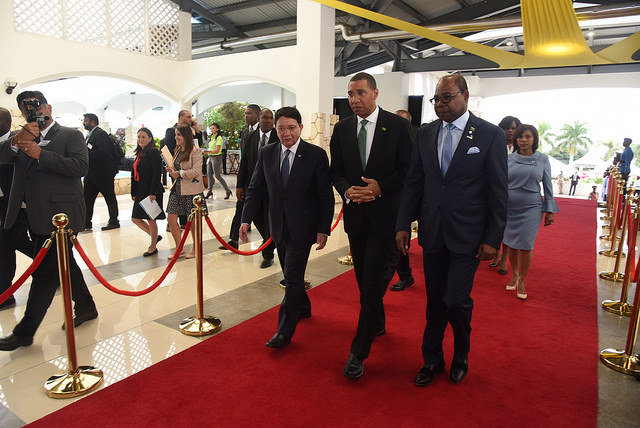
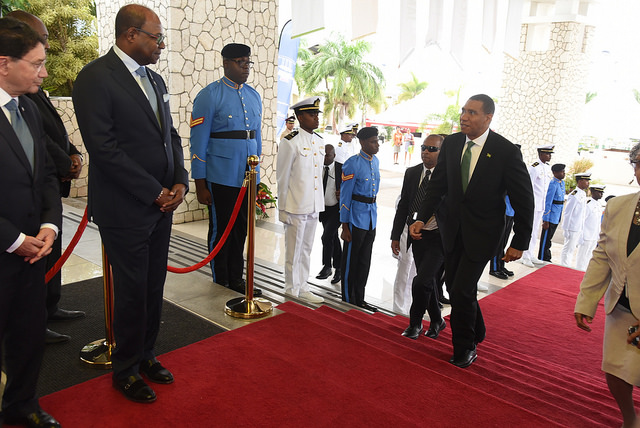
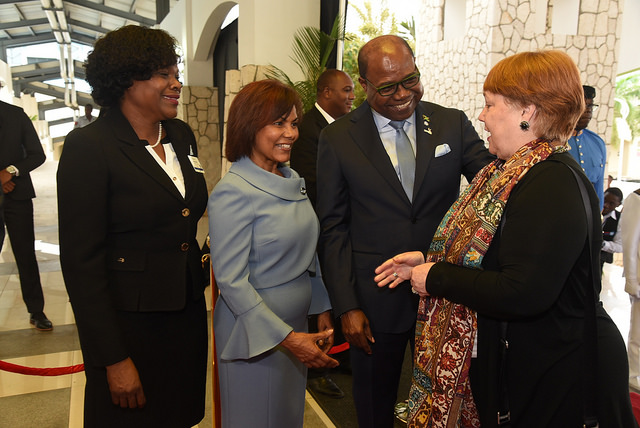
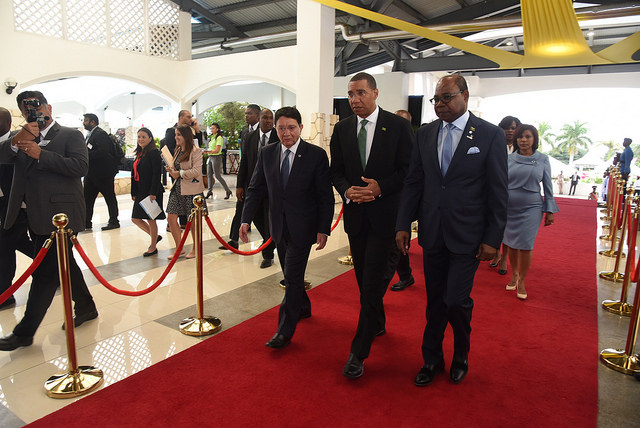
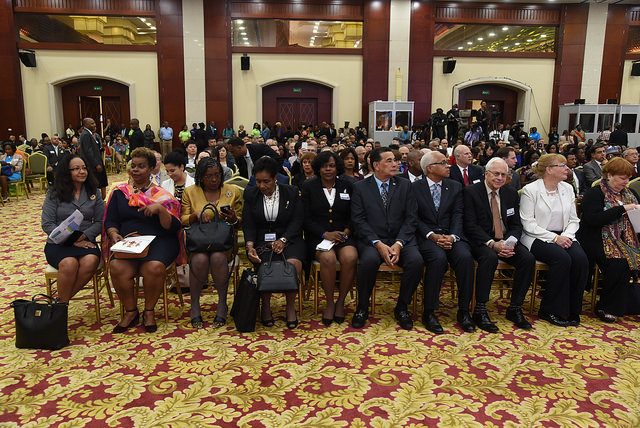
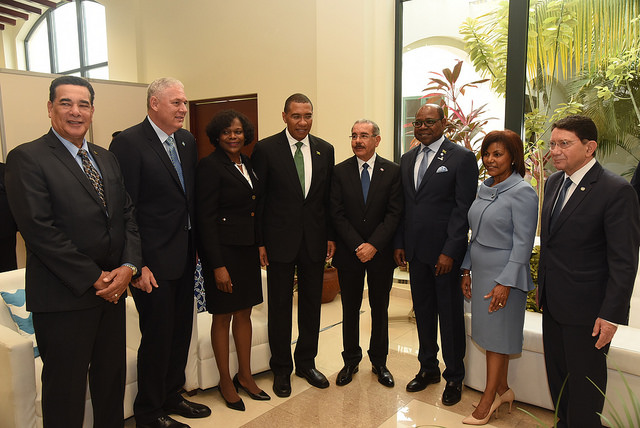
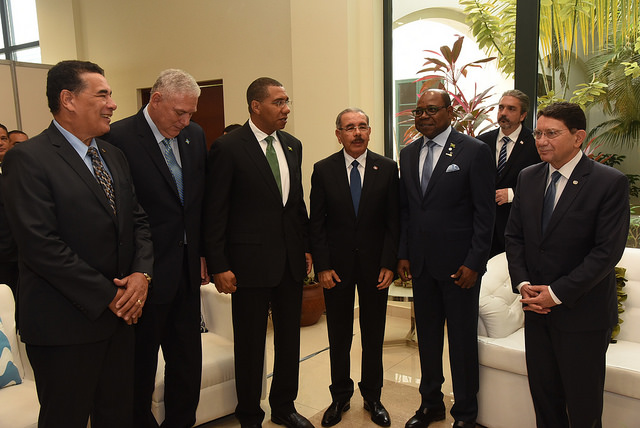


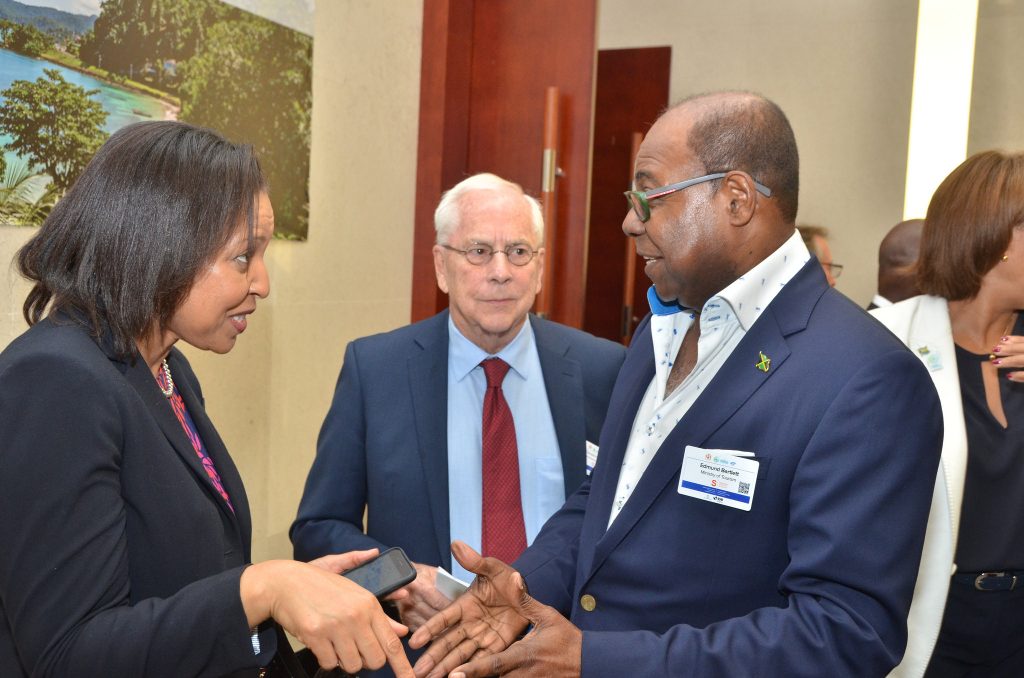

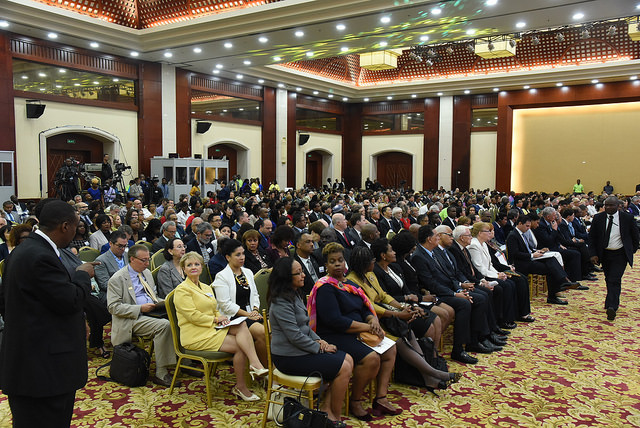

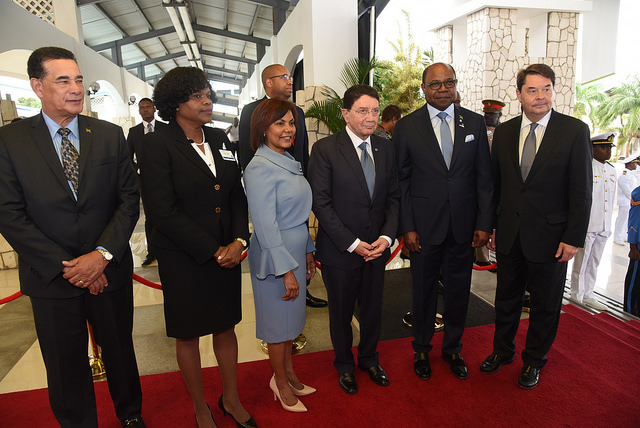
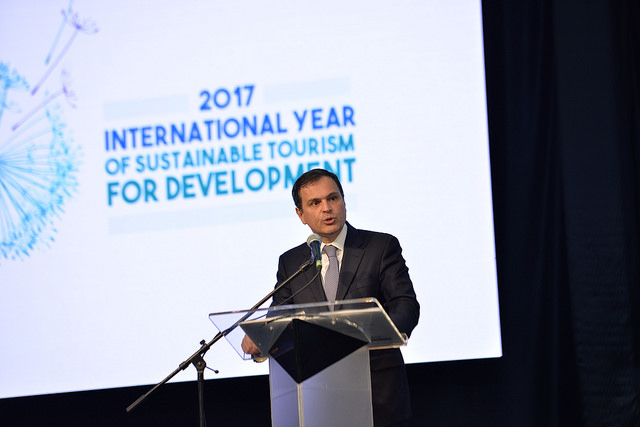
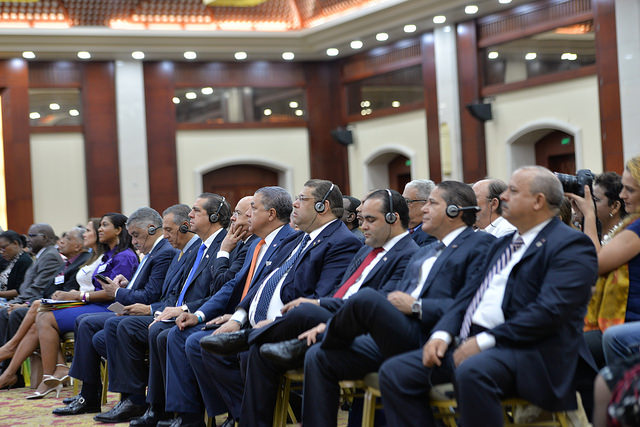

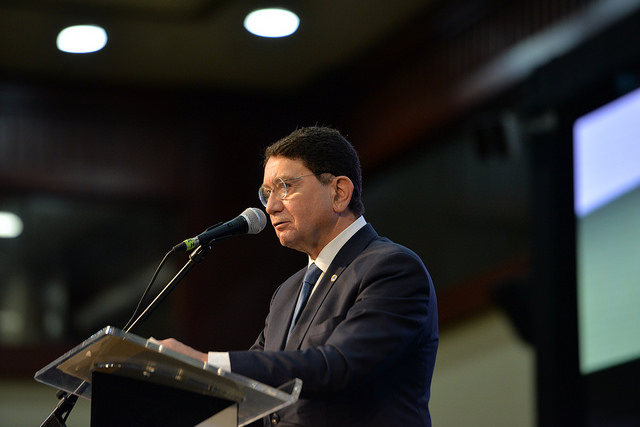
UNWTO Secretary General Taleb Rifai makes Jamaica proud
UNWTO Secretary General, Taleb Rifai told the packed audience that he felt the pride Jamaicans had for their beautiful country, when he heard the presentation of the national anthem this morning, before delivering the following remarks at the opening ceremony of the Global Conference on Jobs and Inclusive Growth: Partnerships for Sustainable Tourism:
Prime Minister, Minister Bartlett, Luis Almagro Secretary General, OAS
Dear Friends,
Good morning and welcome to our very first Global Conference on Jobs and Inclusive Growth in Tourism.
It is a pleasure to be here and to have Jamaica as our generous host, a country that has long been an important partner to UNWTO and the global tourism and development communities.
Particular thanks to the Special Ambassadors of the International Year of Sustainable Tourism for Development 2017, Dr. Michael Frenzel is here today representing them, to all our official sponsors and partners, namely those who join us today, All Nippon Airways, Hilton, PR MediaCo, Ras Al Khaimah, and the Government of Colombia (thank you for coming Sandra).
All of you have made this year possible.
Allow me also to thank the World Bank and the Inter-American Development Bank for partnering with UNWTO and Jamaica in organizing this Conference as well as Chemonics, WTTC, the George Washington University, the Caribbean Tourism Organization and Caribbean Hotel and Tourism Association for their great support to the Conference.
Dear Friends
At the outset of our gathering allow me to express our deepest and most sincere support to all the countries in this region affected by the devastating hurricane Irma.
We are here to show you our full support and walk with you through recovery.
Dear Friends,
Against all odds and despite all challenges, travel and tourism continues to grow as one of the leading socio-economic sectors in the world today.
In 2016, 1235 million travelers crossed international borders, in one year.
That is almost 1/6 of the people of the world making an international trip every year.
2016 was the seventh consecutive year in a row of above average economic growth.
This year, 2017, is no different, as global growth between January and August continues even stronger at +7%.
Tourism is:
Generating US$3.2 billion of spending every day globally
Creating 1/10 jobs all over the world
Representing 10% of world GDP
Constituting 30% of world trade in services,
Travel and tourism is today the 3rd largest export industry in the world after chemicals and fuels.
UNWTO’s long-term forecasts show that by 2030, the 1.2 billion of today will be 1.8 billion.
Beyond the numbers and the economic benefits, tourism is today bringing us together like never before.
Together with other forces of globalization, travel and tourism is making the new world smaller, more connected and more informed, and therefore, more involved, more concerned and a more caring world, a better world indeed.
Travel and tourism is today contributing to breaking down barriers and stereotypes, enabling us to experience, enjoy and celebrate the beauty of our rich cultural diversity.
Mark Twain summed it up pretty well when he said “travel is fatal to prejudice, bigotry, and narrow-mindedness, and many of our people need it sorely on these accounts.”
Travel, dear friends, opens minds, opens eyes and opens hearts.
We become better people when we travel.
Dear Friends,
With growth, however, comes power, and, with power, comes responsibility – with 1.8 billion travelers, we could end up with 1.8 billion opportunities, or 1.8 billion disasters – it’s all up to us.
How we manage this impressive growth is in our hands.
We need to ensure that the 1.8 billion travelers, can and should, when well-managed, translate into:
Opportunities for inclusive economic growth
Opportunities for more and better jobs, decent jobs
Opportunities to distribute wealth and share prosperity
Opportunities to better know and respect each other
Opportunities to protect our natural and cultural heritage
In short, growth, inclusion and progress are our means to achieve
sustainable development.
Because sustainability, my friends, is to sustain LIFE on earth.
Not just to preserve its natural and cultural assets and the foundations of who we are, where we live,
and, how we live (in today’s context, how and where we work) but, to do so, and in the process, elevate LIFE on earth to a higher level of progress and quality for all the people.
BECAUSE
It’s really all about people – they are at the center of all challenges
Growth and sustainability,
Progress and sustainability, should go hand in hand, not either – or, but a win-win equation.
Dear Friends,
In 2015, the international community accomplished three important milestones,
– The 17 SDGs, a roadmap to 2030 (UNGA)
– The Paris agreement on climate change (UNFCCC)
– Dedicate 2017 as “The international year of sustainable tourism for development” (UNGA)
2017 is, therefore, a very special year for us, in the travel and tourism industry, and a unique opportunity for all of us to come together to promote the contributions of travel and tourism, as a grand 21 c human activity, to shape a better future for people and planet.
The question today remains, how can we use this unique opportunity of the IY 2017, to ignite and enable this transformative force, called Travel & Tourism, to contribute to all 17 SDGs, our agenda for 2030? To contribute to making this world a better place?
Dear friends,
I am certain that part of the answer lies in strong, effective and transparent partnerships.
In today’s globalized world, every challenge is a global challenge.
Strong collaboration and decisive action is required to surmount these global challenges.
And such a global challenge, as ensuring sustainable growth for years to come, calls for common goals – effective global partnerships, and stronger financing for development with means which reflect the real potential of tourism to make this world a better place.
That is the message that we are giving loud and clear this week.
Dear Friends,
This conference is a unique opportunity to deliver on a new framework for global partnership for sustainable development through tourism.
An opportunity to create a new roadmap to make tourism an effective path to a better future for all people, leaving no one behind.
As we do so, lets us always remember our motto for this year
TRAVEL
ENJOY
RESPECT (RESPECT NATURE; CULTURE AND THE OTHER)
Thank you.

UNWTO Secretary General Taleb Rifai has a message for Caribbean Tourism Stakeholders
The UNWTO conference on jobs & inclusive growth at the Montego Bay Convention Center in Jamaica has been going overtime today. Among the many celebrities speaking Monday afternoon was outgoing UNWTO Secretary General Dr. Taleb Rifai explaining tourism resilience. The UNWTO Secretary-General said travel and tourism are bringing us together and it makes it a better world.
He announced establishing a global crisis network center in the Caribbean to respond to any crisis anywhere in the world. Tourism should take a leading place in crisis management.
This was echoed and confirmed by Jamaica’s Minister of Tourism, the proud host of this conference.
This special session on building resilience in the face of natural disasters in both a humanitarian and economic necessity, especially for regions like the Caribbean where tourism is often the major source of income and fuels the islands economies and societies. Therefore it is essential for the region to have a functioning crisis preparation management and recovery process that involves both the private and the public sectors. According to Rifai, effective media outreach is utmost important, and it cannot be just statements from the minister saying how good everything is.
Rifai endorsing Jamaica’s minister’s brainchild of opening a crisis resilient center in the Caribbean that would take charge of any disaster anywhere in the world was received by applause.




 The roundtable included Luis Almagro, Secretary General OAS, Edmund Bartlett, Minister of Tourism, Jamaica, Cardigan Conner, parliamentary secretary for tourism, Anguilla, Hugh Rile, Secretary General and CEO, CTO, Frank Comio, CEO and Director General Caribbean Hotel and Tourism Association, Kim Hurtault- Osborne, Executive Secretary for Integral Development, OAS, Virginia Messina, Director Caribbean Recovery Taskforce, WTTC, Sandra Carvao, Chief Communication and Publications Officer, UNWTO, Abel Matutes, Director Palladium Hotel Group, and Prof. Geoffrey Lipman, co-founder Sun X and president International Coalition of Tourism Partners (ICTP).
The roundtable included Luis Almagro, Secretary General OAS, Edmund Bartlett, Minister of Tourism, Jamaica, Cardigan Conner, parliamentary secretary for tourism, Anguilla, Hugh Rile, Secretary General and CEO, CTO, Frank Comio, CEO and Director General Caribbean Hotel and Tourism Association, Kim Hurtault- Osborne, Executive Secretary for Integral Development, OAS, Virginia Messina, Director Caribbean Recovery Taskforce, WTTC, Sandra Carvao, Chief Communication and Publications Officer, UNWTO, Abel Matutes, Director Palladium Hotel Group, and Prof. Geoffrey Lipman, co-founder Sun X and president International Coalition of Tourism Partners (ICTP).
Lipman said to bank on our children and grandchildren and explained his resilience education and the Maurice Strong Legacy Scholarships.
After the session, Xu Jing, UNWTO’s Regional director for Asia and Pacific explained the potential of Chinese Tourists also for the Caribbean. Cuba had a visa-free policy with China sometimes, and already welcomes 49,000 tourists a year. Jamaica also has a visa-free arrangement with China and almost 5,000 Chinese visitors stayed in Jamaica. There is a lot of room for expansion looking at the arrival numbers going into the millions the United States enjoys.
This interesting and well-received session was moderated by Carlos Vogeler, Executive Director, UNWO.

Jamaica’s Tourism Minister delivers address at UNWTO conference opening
Jamaica’s Minister of Tourism, Edmund Bartlett delivered the following address at the opening of the UNWTO Global Conference on Sustainable Tourism at Montego Bay Convention Center on November 27, 2017:
• It is indeed a great honor and tremendous privilege to be opening this very monumental UNWTO international tourism conference, which is the first of its kind in the Caribbean.
• Billed – “Building Private-Public Partnerships for Sustainable Tourism for Development – this conference welcomes global policymakers and leaders in tourism from over 157 countries, several international agencies of the United Nations as well as large delegation of local stakeholders to the beautiful city of Montego Bay for three days of fruitful engagement and discussion about the future of global tourism.
• Over the next three days a wide range of issues related to the resilience and sustainability of global tourism will discussed, such as:
o public-private collaborations for tourism development and growth;
o key elements of successful investments in the tourism sector;
o international best practices in tourism development;
o tourism and the SDGs;
o international technical assistance and financing for tourism development projects; and
o Donor-funded projects that balance scale, sustainability and inclusion.
• At the end of this conference, I am very optimistic that we will be able to craft a global agenda that seeks to design collaborative approaches to mitigate shared tourism risks and strengthen resilience as well as build consensus around the strategies necessary to further position global tourism as a catalyst for promoting inclusive economic growth, sustainable livelihoods, environmental sustainability and social development.
• I note that a conference of this nature and magnitude is very fitting and is indeed a timely response to some of the emergent issues that are posing a serious threat to the sustainability of the tourism product in the Caribbean and other tourism-dependent regions across the world.
• The United Nations 70th General Assembly designated 2017 as the International Year of Sustainable Tourism for Development with the hope that this would present a unique opportunity to raise awareness of the contribution of sustainable tourism to development among public and private sector decision-makers and the public, while mobilizing all stakeholders to work together to make tourism a catalyst for positive change.
• The International Year also seeks to support a change in policies, business practices and consumer behavior towards a more sustainable tourism sector that can contribute to the attainment of the Universal 2030 Agenda for Sustainable Development and the Sustainable Development Goals (SDGs). So you can see, this conference fits perfectly within the global focus on sustainable tourism.
THE CARIBBEAN PERSPECTIVE
• The question of sustainability is an even more urgent concern for tourism-dependent small island dependent states, like those in the Caribbean, that face disproportionately greater risks due to their sizes, geographical location and lack of economic diversification.
• The Caribbean remains the most tourism-dependent region in the world. Tourism is the single largest generator of foreign exchange in 16 of the 28 countries in the Caribbean and also the sector receiving the most FDI. The region has a higher proportion of total employment and percentage of GDP derived from tourism than any other region in the world.
• Despite this, however, Caribbean countries face a greater degree of vulnerability to the worst effects of major environment disasters, particularly climate change, a phenomenon to which they have contributed the least.
• Already, this year the resilience of the tourism sector in the region has been tested with the passage of Hurricanes Irma and Maria, which affected 13 of the most tourism-dependent countries in the region including: St. Martin, Anguilla, Dominica, Barbuda, St. Barts, the British Virgin Islands, the US Virgin Islands, Turks & Caicos, the Dominica Republic and Puerto Rico.
• Some territories have suffered almost total devastation or over 90 % damage to their infrastructure from these hurricanes and it will take many years and substantive investments to bounce back.
• However, if there is one thing I know about my Caribbean brothers and sisters, it is that they are very resilient people and the region’s propensity to bounce back from unpredictable events and soar to greater heights has been tried tested and proven. Importantly despite the challenges, I am happy to report that the Caribbean is still open for business.
YEAR IN TOURISM
• Despite the multi-faceted challenges confronting the region, Caribbean tourism continues to grow at record pace. The tourism sector in the region was able to overcome early projections of downturn in global tourism receipts for 2016 – amid volatility and uncertainty in main source markets such as the USA and parts of Europe owing to Brexit, the US Presidential Elections, and terror attacks in Brussels and in other European cities – to grow at an unprecedented rate of 4.2% in 2016.
• The region welcomed a historic 29 million visitors in 2016, over 1 million more visitors than in 2015. Tourism growth in the region outpaced the global average of 3.9 %. The data for 2016 also indicate that cruise tourism in the region is booming as cruise passenger arrivals grew by an estimated 1.3 per cent, to approximately 26.3 million in 2016.
• For the first six months of 2017, data compiled by the Caribbean Tourism Organization show that the region welcomed 16.6 million international tourists or 800,000 more than in the first six months of 2016, constituting a growth rate of 5.2 %.
• So far, Jamaica’s tourism performance for 2017 has been no less impressive than that of the wider region. We are already on track to surpass last year’s historic growth rate of 4 % or 3.84 million visitors in total. We welcomed over 3.3 million visitors in the first 9 months of 2017 and we expect total arrivals to surpass 4 million by the first week of December.
• Gross foreign exchange earnings for the first 10 months of the year were US$2.34 billion, which is a 10.8 per cent increase over the corresponding period in 2016.
• We remain firmly committed and convicted that our tourism industry is on the right track and that we will achieve our growth target of “5 in 5” or 5 percent annual growth rate in five years.
RISKS AND CHALLENGES IN THE CARIBBEAN
• Although the Caribbean is open for business it cannot be business as usual in the Caribbean. While the tourism sector in the region has traditionally been very resilient and remains one of the most valuable contributors to job creation, poverty alleviation, investments, export revenues, GDP and to the economic livelihoods of millions of citizens , its gentle balance can be easily disturbed by a wide range of risks and threats. These include, global economic recessions, global food shortages, an oil crisis, political instability in major source markets, terrorist attacks, environmental disasters and pandemics and epidemics, just to name a few.
• As we have seen recently with the passage of Hurricanes Irma and Maria, it just takes one powerful disaster to devastate whole national economies. Thus, we can never become complacent.
• We have to reassess our existing strategies for managing risks and challenges, incorporate new approaches and harness new opportunities for growth and expansion in our tourism sector.
• Indeed, the sustainability and resilience of our tourism sector is hinged upon us being forward-thinking, proactive, collaborative, multi-faceted and innovative in our approaches to tourism development in the region.
• I will thus use the next several minutes to discuss some of the priority areas that must be attended to if the Caribbean region is to seriously pursue sustainable tourism in the coming years.
FIVE PILLARS OF GROWTH
• Here in Jamaica , my ministry has already established its “Five Pillars of Growth”, which encompasses five critical areas that we will be prioritizing over the next several years to expand the capacity of tourism to contribute to sustain economic growth, sustainable livelihoods and human development in Jamaica.
These areas are:
o Identifying new markets;
o Offering new products;
o Seeking new investments;
o Forging new partnerships; and,
o The renewal of human capital.
INCLUSIVE GROWTH
• The growth agenda for the Caribbean tourism sector must be people-centered and aligned with broader national economic and social imperatives. It is important that Caribbean states understand that sustainable tourism must mean inclusive growth that will expand economic benefits to local populations; in the process helping to move people’s lives from poverty to prosperity.
• The tourism sector must not only generate prosperity and wealth for large hotel owners and service providers but will also help to preserve the natural and cultural resources of the islands; strengthen linkages with other sectors of the economy, particularly the agricultural and manufacturing sectors; strengthen the benefits derived from the industry by local residents and communities; and promote broader participation by all Caribbean nationals.
COMMUNITY TOURISM
• Caribbean governments are encouraged to make community tourism a priority area of sustainable tourism. Jamaica’s National Community Tourism Policy and Strategy, for example, envisions an invigorated tourism sector in communities that enriches quality of life through social, cultural, economic and environmental benefits, exemplifies sustainable livelihoods, and strengthens Jamaica’s national policy values and interests. Our community tourism initiatives aim to ensure that tourism enterprises return economic, cultural, social and environment benefits to the communities in which they operate.
• Those of you attending Thursday’s three technical tours will get to experience first-hand some of Jamaica’s inclusive community tourism attractions – the Rasta Indigenous Village, Cockpit Country Adventure Tours and Bunkers Hill Cultural X-perience & River Tour.
TOURISM LINKAGES NETWORK
• We have also established our Tourism Linkages Network, which has a mandate of promoting sustainable tourism development in Jamaica by developing and strengthening sustainable linkages between the tourism sector and other productive sectors of the economy — such as agriculture, manufacturing and the creative industries, including entertainment.
• Our Tourism Linkages Council is made up of public and private sector partners who oversee the coordination and implementation of effective and sustainable strategies, which strengthen and facilitate linkages.
SEGMENTATION & DIVERSIFICATION
• If Caribbean tourism intends to be globally competitive we must find ways to unlock new sources of competitiveness. One approach would be to diversify our offerings to attract new markets. International travellers have become far more demanding and have higher expectations of the destinations to which they travel or intend to travel.
• International tourism trends are showing a shift from the traditional ‘sun, sea and sand’ towards interactive experiential tourism, one of tourism’s fastest growing sub-sectors, appealing to markets interested in gastronomy, nature, heritage and cultural experiences in the destinations they choose. The Caribbean tourism sector must position itself to tap into these emergent markets that constitute the future of global tourism
• Here in Jamaica we have already recognized the potential benefits that market segmentation and diversification can produce for the global competiveness of our tourism sector. We have already started to explore five emerging tourism models. These are:
o Gastronomy
o Health and Wellness
o Sports & Entertainment
o Shopping
o Knowledge
NEW MARKETS
• Other means of enhancing the competitiveness of the region’s tourism sector would be for us to enter into discussions with several airlines and tour companies to discuss the way forward in terms of possibly introducing new locations to their Caribbean itineraries.
• We must also aggressively target promising markets in South America, Europe, Asia and even promote more seriously the idea of intra-regional tourism. We must also target our vibrant Caribbean Diasporas that are spread across major source markets such as Canada, the USA and the United Kingdom to encourage expatriates to return home more often.
MULTI-DESTINATION TOURISM
• It has already been recognized that the future fortunes of Caribbean tourism may lie in economic convergence between complimentary economies. Considering this fact, we need to look into the feasibility of multi-destination arrangements that that will increase intra-regional tourist flows and promote mutual benefits for more destinations in the region.
• The countries of the north-western and south-eastern Caribbean are well positioned to embrace this new architecture as their geographic alignments are clear and are all within an hour-and-a-half by air or sea from each other, making it easy for island-hopping and experiential enrichment for the visitor.
• In establishing multi-destination critical mass will be created for large investments in hotels, infrastructure, agriculture and manufacturing. Furthermore, small and medium-sized businesses will enter the market providing more goods and services, employing more people and provide value added goods and services to the economy. This will be a win-win for all.
• For our part we continue to aggressively pursuing a multi-destination marketing arrangement with Cuba, Mexico and the Dominican Republic.
• As we explore opportunities in multi-destination tourism, we must also seek regional cooperation in related areas such as aviation and airlift strategies to move seamlessly within the region, visa facilitation and access to each other’s destinations, as well as pre-clearance arrangements.
• This also has significant implications for marketing, which could help position the Caribbean as a powerful holiday destination.
WORKFORCE DEVELOPMENT
• Moving forward we must also recognize the importance of workforce development in the tourism sector.
• Tourism remains one of the country’s most labour intensive sectors and capacity-building and the welfare of tourism workers is critical to the region’s ability to promote sustainable tourism development.
• We must commit ourselves to the constant training and retraining of our tourism workers; to engendering collegial relationships between staff and management and to providing for the welfare development of tourism workers through initiatives aimed at ensuring they have access to scholarships, internships, insurance coverage and home-owning opportunities.
• This is important in ensuring that they are able to continue to deliver quality service, which is the hallmark of any globally-competitive tourism product. To promote workforce development, my ministry has already established A Pension Scheme for Tourism Workers and we intend to develop solutions that will allow hotel workers to access affording housing opportunities.
SUPPORT FOR MICRO, SMALL AND MEDIUM-SIZED ENTERPRISES.
• The overwhelming success of region’s tourism product has largely been as a result of the synergies and symbiotic relationships that have traditionally existed between the hotels and other linked sectors and enterprises, which have all played a major role in guaranteeing the totality of the local tourist experience.
• Indeed, tourism is nothing without the vast network of micro, small and medium-sized tourism enterprises (MSMTEs) that contribute significantly to the authenticity and quality of the tourism experience; enhance destination competitiveness, contribute to enhanced brand image and that help to forge positive local networks and enhance productivity. We must continue to protect and deepen these synergies to ensure that more local businesses can continue to benefit from tourism.
• We must reaffirm our commitment to supporting initiatives that will help to showcase the talent, products and services of our local producers as well as provide training and assistance in areas such as provision of training and technical assistance in areas such as: marketing, business administration, product development, skills development and ICT use for artisans and community-based enterprises.
E-TOURISM
• On the supply side, we must keep abreast with the current digital trends. We must recognize that ICTs have tremendous potential to enhance competitiveness, strengthen our tourism brand and grow our market shares. As such it is in our best interest to promote ICT diffusion in the tourism sector. The survival of our tourism sector may very well depend on it.
• The Travel & Tourism Competitiveness Index (TTCI) 2015, which measures the set of factors and policies that enable the sustainable development of the Travel & Tourism sector, concludes that countries performing more strongly on the TTCI are those that are better prepared to capture the opportunities of new trends: the differing preferences of a new generation of younger travelers; and the growing importance of online services and marketing, especially through mobile internet.
• Tourism is an information intensive sector and ICT’s are a key driver for developing countries in organizing and marketing their tourism products.
• Adopting ICT innovations will help to mitigate tourism leakage by ensuring that local businesses, operators and purveyors of tourism products and services are better able to enhance their own capacities to create new knowledge and information-intensive businesses and thus seize commercial opportunities that are usually outsourced to foreign markets, depriving the Caribbean countries of valuable earnings.
• Tourism players who understand the potential of knowledge and Information innovations to not only deliver more premium tourism products and services but to also better market their own businesses will outcome those who continue tom rely on traditional modalities.
• We must be taken off guard here in the region. Before it is too late, we must recognize that the future of tourism-related data collection and management, planning, marketing, mapping, exchanges and transactions, market analysis, product development, diversification and value-added services is linked to the adoption and exploitation of ICT capabilities such as big data, big data analytical, machine learning, blockchain technologies, The Internet of Things and robotic).
• We must begin to manipulate these ICTs platforms to reinforce the resilience of our tourism product.
SMART TOURISM/SMART DESTINATIONS
• ICT diffusion in the tourism sector is also aligned with promoting smart tourism destinations which can be defined as those destinations that exploit real-time data, integrate and share data, and using complex analytics, modeling, optimization and visualization to make better operational decisions.
• Smart tourist destinations will also use technologies (such as sensors and other IOT platforms) innovatively to achieve improved security and traffic monitoring, resource optimization, participatory governance, sustainability and improved quality of life.
DISASTER RISK MANAGEMENT/ CRISIS MANAGEMENT
• Unfortunately, none of the initiatives that I have just described will be able to realize their transformational effects if the region does not address its most pressing and immediate threats to sustainable tourism development.
• More than any other time in our past, tourism authorities in the region must now seriously address the issue of disaster risk management and mitigation. It is clear that in recent years the region’s tourism sector has become increasingly vulnerable to both natural disasters and external shocks, particularly climate change, which can now be reasonably described as an existential threat to our tourism sector.
• The time has come for us to urgently respond to and strengthen our resilience against threats such as natural disasters, climate change, pandemics and epidemics, terrorism, cyber attacks. We need to enhance our regional capacity to manage range of chronic transnational challenges that can be destabilizing to our tourism sectors.
• Aspects of this approach could involve developing a framework of indicators to measure resilience; promoting innovation systems for climate adaptation and resilience; fostering deepened knowledge of cyberspace policy, promoting counter-terrorism studies, developing urban resilience and building meaningful partnerships.
• Meaningful risk management strategies for the region must focus on priority areas and outcomes such as Collaborations, information-sharing, collective action, capacity-building, resource allocation and funding, public education, planning and management of projects, behavioral modifications, monitoring and evaluation, environmental conservation, alternative and renewable energy and the adoption of green practices in the tourism sector.
CLOSING REMARKS
• In closing, as I open this very important conference which joins key tourism principals from all across the world together, the message is SUSTAINABILITY and we must use this opportunity to push a global sustainability agenda that will ensure the survival and resilience of the tourism sector upon which billions of people across the world depend on, directly and indirectly, for their sustenance and livelihoods.
• In addressing shared risks and threats, insularity and narrow-self interest must be replaced by fruitful engagements and collaborations which seek to develop cross-cutting solutions and unite tourism players under a common mission, which is to save a sector that is so dear to all of us.
Thank you.

Jamaica UNWTO conference: The future of tourism in the Caribbean
Partnership for sustainable tourism started today at the UNWTO conference on jobs & inclusive growth in Montego Bay Convention Center.
A proud host the Jamaica minister of Tourism HE Edward Bartlett welcomed 1300 delegates from well over 60 countries to the largest tourism conference ever held in Jamaica. He said it’s actually the largest conference of this sort ever held in the world.
The subject this morning was the future of tourism in the Caribbean touching public private partnerships.
Keynote for The Future of Tourism – Innovation Challenges in the Caribbean Region was delivered by Eduardo Fayos-Solá, Senior Adviser, IITS George Washington University.
Overview session was moderated by Lloyd Waller, Senior Advisor to the Minister of Tourism, Ministry of Tourism, Jamaica.
The session’s panel members were:
• Dionisio D’Aguliar, Minister of Tourism and Aviation for the Bahamas and Chairman, CTO
• Karolin Troubetzkoy, President, CHTA
• Kim Hurtault-Osborne, Executive Secretary for Integral Development, OAS
• Virginia Messina, Director, Caribbean Recovery Taskforce, WTTC
• Carlos Vogeler, Executive Director, UNWTO
• Abel Matutes, Director General, Palladium Hotel Group
